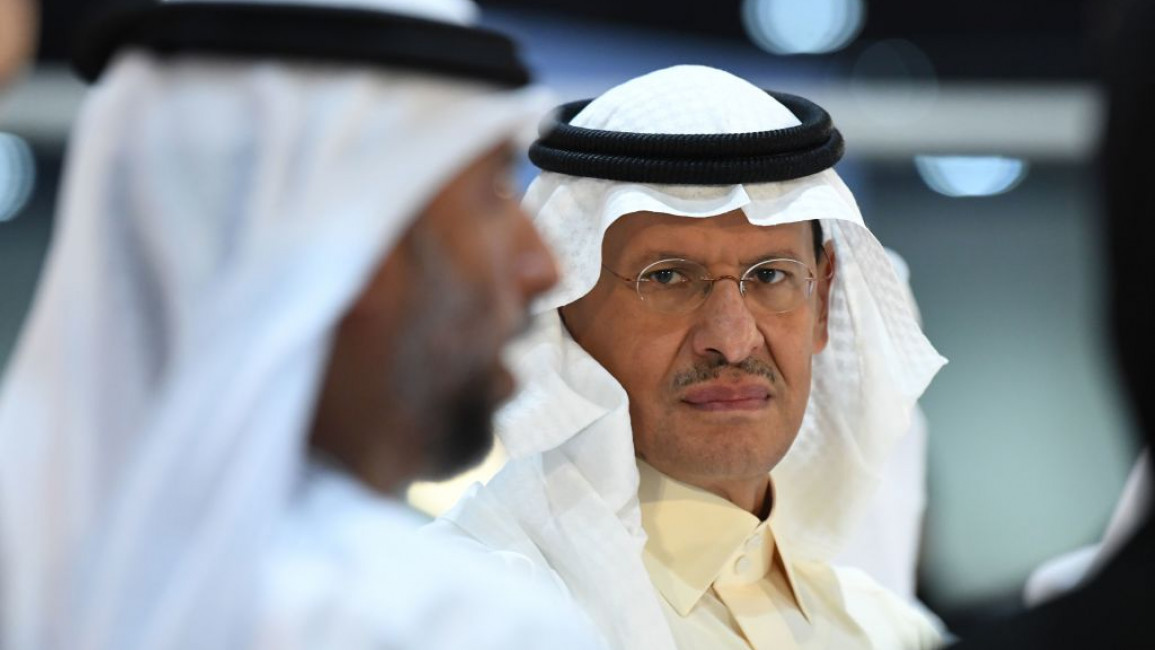Saudi Arabia sends 'warning' to Biden with potential cuts to oil production: reports
Saudi Arabia was sending a warning to US President Joe Biden when it threatened to lead oil-producing countries in OPEC+ into cutting production to calm volatile markets earlier this week, experts told UK media.
After the price of Brent Crude oil dropped below $100 a barrel on Monday, the Gulf kingdom’s energy minister Prince Abdulaziz bin Salman said oil producers could respond to violate oil prices "including [by] cutting production at any time and in different forms".
This was a message that not only served to revitalise prices, which rose to $102 by Thursday. But it was also intended as a warning to the US as a nuclear deal with Iran nears completion, potentially flooding oil markets over the winter, according to former White House advisers and senior oil analysts.
"People familiar with the kingdom’s thinking say Riyadh’s sudden intervention, which has boosted oil prices back above $100 a barrel, was motivated in part by a desire to make clear to the US the consequences of allowing Iranian oil back into global markets," reported the Financial Times.
Saudi Arabia is a leading member of OPEC+ , the Organisation of the Petroleum Exporting Countries and its allies, alongside Russia.
The Kingdom has repeatedly ignored calls from Biden to increase production. Embargoes on Russian energy imports have driven up energy prices in the West, triggering a cost of living crisis which is set to worsen over the coming months.
Oil prices fell briefly at the start of this month - but Saudi Arabia’s comments, which were supported by OPEC President Bruno Jean-Richard Itoua and several oil-producing states including Iraq and Kuwait, prompted a price increase.
The Saudi intervention was intended to "defend a floor price" for oil, Roger Diwan, vice-president at IHS Markit Experts, told The Financial Times.
There’s also the prospect of a "potential return of Iranian barrels [which are] a destabilising element for the Saudi-Russian duopoly in Opec+," he added.
Former White House adviser Bob McNally told the British newspaper that Abdulaziz's intervention was intended to inject stability into "a crude futures market going haywire".
A nuclear deal between Iran and the US to limit Tehran’s uranium enrichment in exchange for lifting sanctions is inching closer to finalisation. Iran is "carefully" reviewing the US response to a European Union-drafted agreement, according to the latest reports.
Should an agreement materialise, Tehran could raise supply by hundreds of thousands of barrels a day by the end of the year, driving down global prices.
Saudi Arabia has strongly opposed returning to the deal. The kingdom and Iran are long-time regional foes, fighting for influence via a series of proxies in Yemen, Syria, and elsewhere.


![President Pezeshkian has denounced Israel's attacks on Lebanon [Getty]](/sites/default/files/styles/image_684x385/public/2173482924.jpeg?h=a5f2f23a&itok=q3evVtko)



 Follow the Middle East's top stories in English at The New Arab on Google News
Follow the Middle East's top stories in English at The New Arab on Google News


